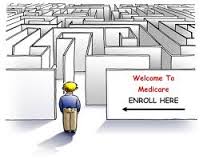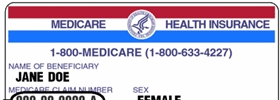The advantages of using a broker as opposed to doing the research yourself are:
- Brokers are independent agents, who will give you their unbiased opinions about which Medicare Supplement plan to enroll in. They will explain all the various options to you, as far as which plan would be the best suited one for your situation and needs. Some plans have more benefits than others and vice versa, and they will help you decipher between the advantages and disadvantages of each plan.

- The broker understands which Medigap companies have stability and what their credit ratings mean. They are well-versed in how to interpret these rating scales, and the stability outlook ratings as well. The broker is adept at breaking all this information down and explaining it in a clear, simple fashion. If you do the research on your own, you might not know about the AM Best or S&P ratings and skip them entirely.
- The broker has experience and knowledge as to which companies have competitive rates and which do not.
- The broker, possessing an in-depth knowledge of the industry, is aware of which companies are more reputable than others and can thus steer you in the right direction.

- The broker has the time and patience to do all the legwork for you. If doing all the work yourself, you might get overwhelmed and inundated (in fact, I’m sure you will!) by the amount of material you will have to sift and make sense of before you decide.
- There is usually a back-office support team who can assist you and intervene on your behalf, when you have an issue or question regarding your Medicare Supplement plan. When you call a large insurance company, you usually get a call center and the customer service is not catered to you alone. On the contrary, if you call your broker, the customer service you receive will most likely be more attentive and personalized, as you have already established a business relationship with the agency.
- Most brokers (including Secure Medicare Solutions) do NOT charge a fee for their services (and there is no need to pay for a broker’s services).
Once you decide that you want to use a broker to help you find a plan, you need to ask yourself the question: Do I want to enlist the help of a local or national broker? The following comparison may clarify things for you.
- A local broker can indeed assist you, but they are not always the most qualified. Location might be everything to some people, but the proximity of the agent should not be the decisive factor when buying a Medigap policy. Nowadays, with streamlined technology being available, most applications can be completed using an online application process. The client then reviews and signs the application electronically, and it is submitted in real time to the insurance company. The application can also be done over the phone with the client. As such, there is really no need for client face-to-face interaction. You will have more access to a larger pool of brokers among which you can choose to work with.

- Some local brokers are not really brokers – they are “captive” agents who sell only the products of the company they work for. They might be considered employees of the company. In this instance, the broker might not have the best of intentions. He is restricted to selling only what the products that his company promotes. Even if there is a better product available in the market, since he/she is held captive to that company, you would not have other options.
- A broker must be licensed in the state in which is selling the Medigap plan. So please be wary of anyone who tries to sell you something that he or she is not licensed to sell or not for the state they are licensed to sell in!
The decision to go it alone or use a broker may be a tough one to make. On the other hand, it may be an easy one for you to make, since you know exactly what you should do. If you like doing research and are good at it, then forge ahead on your own! But be aware that, to make a truly informed choice, you may have to call 30+ insurance companies that offer Medigap plans in your state. If you want someone else to do the “heavy lifting” for you and explain all aspects of Medicare and Medigap so you can make an informed choice, then the best choice for you would be to let a broker do the work.




